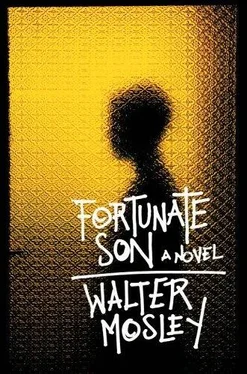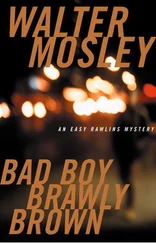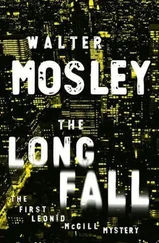“Yeah,” Raela said with a big smile.
Raela knew in her heart that this man was meant to be hers, and he knew it too. They talked until the sun went down. In that time his chest cold cleared up, and she made him promise to be her friend.
“Raela,” a man’s voice called from out in the yard.
“Out here with Eric, Daddy,” the innocent girl exclaimed, jumping to her feet.
He walked into the guesthouse, a rhinoceros nosing its way into a mole’s den.
Eric had never met anyone like Kronin Stark. He was at least six and a half feet tall, weighing well over three hundred pounds. His black hair was too long for a man his age, and his mustache was so profuse that it overwhelmed his trim beard. He had huge hands and great black eyes made to mesmerize.
When he asked, “What’s this?” Eric felt a small quelling in his heart.
“This is my new friend, Eric, Daddy,” Raela said with absolute certainty.
“I thought that he was your brother’s friend?”
“We can share. Eric and I flipped coins and came up even almost.”
Surprise registered on the big man’s face. His brow furrowed, and he began to take deeper consideration of the young man.
“I see,” he said at last. “Well... welcome to the family, Eric.”
As the billionaire turned to leave, the Golden Boy watched him, unable to speak or even to register what had just happened.
“See?” Raela said. “We will be friends forever and that’s that.”
The final tone of Raela’s exuberance stayed with Eric, but it didn’t make him at all happy. He had found the girl who would become the woman for him, but he didn’t want to sink the lives of his daughter and her mother in order to have her. He feared what could happen. On the short drive home he considered deserting Christie, going to Mexico or Ghana and starting a new life far away from anyone he could hurt. He thought of telling Christie the truth: that he had to leave in order to save her more pain. Raela, he knew, would have believed him, but Christie would never understand.
Driving down Sunset Boulevard, Eric felt the trap of his fate closing in. He thought about the tiger’s son who was the cause of his parents’ death. In his fantasy Raela transformed into a great feline, and she stalked Mona and Christie in a dark alley. He could see them but could not stop the monster from pouncing; he couldn’t because the monster was his own leaping heart.
His eyes were stinging from a sudden sweat, and his hands, also sweating, slipped and shook upon the steering wheel. He pulled to the curb and tried to think his way out of the vision that he believed was true.
People appeared to him. His father wouldn’t know what to say, he knew. Ahn would agree with his assessment of the problem and shake her head fatalistically. Michael and Christie and Mona were useless. He had no other friends that could help.
All he could think of was Tommy and Mama Branwyn. But she was dead, and no matter how quickly he opened his eyes he never caught a glimpse of her as Tommy had done. And his brother was lost to him. He believed that if he found Thomas he might be saved from his own cursed luck. But there was no sign of Thomas anywhere in L.A. Even his grandmother had lost track of him.
Having lost his brother again in his mind, Eric realized and accepted that he was alone in the world. He decided that he’d never talk to Raela again. He could control his destiny. He didn’t have to give in to the gravity he felt in her presence.
After all it still wasn’t love that he felt. There was a rightness in the combination of him and Michael’s sister. She was his other half in some way, his equal. She’d be immune to his providence.
But he would never see her again and his family would be safe. Mona would grow up and move away, and he and Christie would live into old age, her resenting his distance and him guarding her life.
The sweat broke and Eric laughed to himself. He felt as if he had jousted with a tiger. He’d battled an inner demon and won, with no one but himself to mark the victory.
Eric came home to find Drew Peters sitting on the sofa, casually talking to Christie.
She seemed a little nervous, but Eric felt that that was only natural. Drew and Christie had been together, off and on, since they were twelve. There was a deep bond between them, and it must have been difficult for them to sit together when she was now with Eric.
“Hey, Drew,” Eric said.
“I won that last point” were the first words out of his mouth.
“You would have,” Eric agreed for the hundredth time, “if the sun hadn’t come out right then.”
“You better believe it,” Drew added. “I had your ass.”
Eric sat with them and talked about Drew’s work at Yale. He went in wanting to become a physicist, but now he was interested in painting. His father was angry about the change of major, but he didn’t care.
“I’m going to do what’s right for me,” Drew said with deep conviction and maybe even a little anger. “And I don’t care what anybody thinks.”
Eric had little to say about his own work. It wasn’t much different than the studies he did at Hensley. Mona toddled in while they talked. She crawled up onto her father’s knee and went instantly to sleep there.
Christie watched them with a frown on her face.
Drew soon excused himself, and Christie went to bed with a headache.
Eric sat on the little patio twenty-five stories above L.A. The building was also on a hill and so looked far out on the horizon. Mona woke up and said, “Daddy?”
“Yes, baby?”
“Do you love me?”
“Very much,” he said.
He kissed her to cover up the lie.
During the first few years that Eric attended UCLA, life got very hard for his brother Thomas. The lean escapee found a shopping cart and traveled the streets of Los Angeles gathering things that he found beautiful and useful. He loved blue glass and chrome, red cloth and books. He collected all kinds of books. Some he could read and others not. He ranged all over L.A., sometimes sleeping in Griffith Park, sometimes in the cavelike feeders to the concrete L.A. River. He was robbed every other month or so but only raped once, by a wild man who came upon him sleeping in an alley off Florence, when he was thinking of going back to his alley valley.
Once Thomas went down to Malibu and walked the beaches where he’d gone with his brother and Dr. Nolan. He didn’t stay long because the sun on the sand was too bright.
The police stopped him all the time, but he used Bruno’s Social Security card as identification and claimed that he was twenty-three. The police believed him because after all that time living outside, Thomas’s voice had become rough and his face was quite weathered and beat-up.
He had no friends. The only people he knew were other street people who traveled the avenues and alleys looking for refuse that was either edible or of some value to someone somewhere. He gathered bottles to return for the deposits and copper piping from discarded air conditioners, stoves, and refrigerators. These valuable metals he brought to recycling centers for a couple of dollars every now and then. In an old mayonnaise jar he kept the carcasses of interesting bugs that he’d find. In the day sometimes he’d dump out the bugs and investigate God’s divine will manifest in their intricate designs.
While Thomas walked, he’d usually have a running dialogue with his mother, Branwyn.
“Mama, why am I like this?” he’d ask periodically. “Why am I walkin’ down Pico with nowhere to go to? Why am I bein’ punished? Am I so bad that I don’t get to have a home like the other people in the world?”
“There’s nuthin’ wrong wit’ you, baby,” Branwyn would say in Thomas’s highest voice. “You just too good for some’a these people who think poor peoples are evil. They can’t see you for what you are because of your old clothes and the dirt and your shoes with the holes in ’em. If you were to get all clean with new clothes, people would see you for what you really are, and they would give you a job and an apartment and you wouldn’t be so lonely and sad.”
Читать дальше












